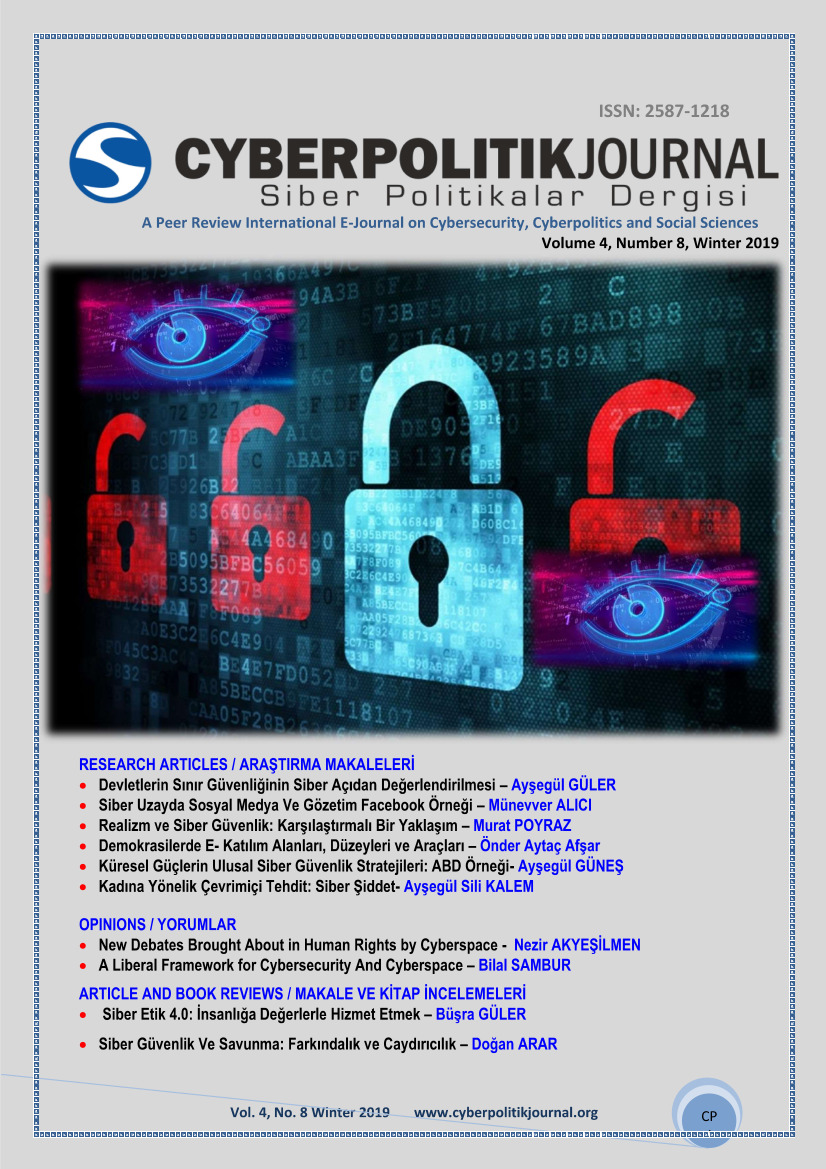DEMOKRASİLERDE E- KATILIM ALANLARI, DÜZEYLERİ VE ARAÇLARI
Anahtar Kelimeler:
demokrasi- e-katılım- e-demokrasi- e-devlet- Bilgi İletişim TeknolojileriÖzet
Gelişen iletişim teknolojileri demokrasilerin katılım olanaklarını artırma potansiyeline sahip önemli araçlar olarak öne çıkmış ve vatandaşlarının karar alma süreçlerine aktif katılımına imkan sağlayarak katılım kalıplarını önemli ölçüde değiştirmiştir. İnternet’in ortaya çıkışı, demokratik süreçler üzerindeki potansiyel etkileri hakkında kapsamlı bir tartışma yaratmış ve demokrasinin kalitesinin artması konusunda beklentileri artırmıştır. Yeni bilişim teknolojileri, önemli bir siyasal yönetim biçimi olarak demokrasiyle ilgisi bağlamında e-demokrasi ve e-katılım kavramlarını ortaya çıkarmıştır. Bu kapsamda Bilgi İletişim Teknolojilerinin sağladığı yeni imkanların ulusal ölçekte temsili demokrasilerin temsil gücünü artıracağı, belki de doğrudan demokrasi yolunda önemli bir aşama kaydedilebileceği tartışılmakta ve demokrasiye ve demokratik süreçlere katılıma azalan ilgiyi onaracak iyi bir araç olarak değerlendirilmektedir. Bu çalışmada demokrasinin temelini oluşturan katılımın elektronik şekli olan e-katılım araçları ve e-katılım alanlarının daha yakından incelenmesi amaçlanmaktadır. Ana tema olarak internet altyapısı temelinde yeni bilgi ve iletişim mekanizmalarıyla vatandaşların siyasal karar alma süreçlerine katılması, demokrasi kuramları çerçevesinde incelenmektedir. Çalışma, dijitalleşme yoluyla e-demokrasi ve e-katılım uygulamalarının demokratik süreçlere sağlayacağı katkıları değerlendirmekte olup, bu konuda genişletilebilecek temel bir çerçeve sunma amacındadır.
İndir
Yayınlanmış
Nasıl Atıf Yapılır
Sayı
Bölüm
Lisans

Bu çalışma Creative Commons Attribution-NonCommercial-ShareAlike 4.0 International License ile lisanslanmıtır.










